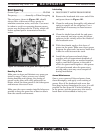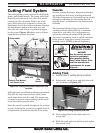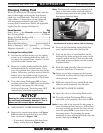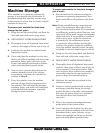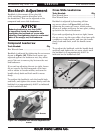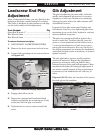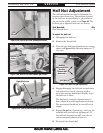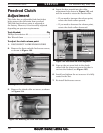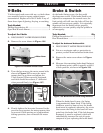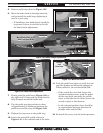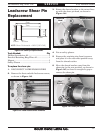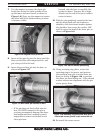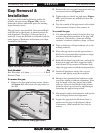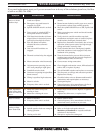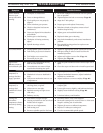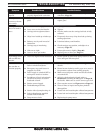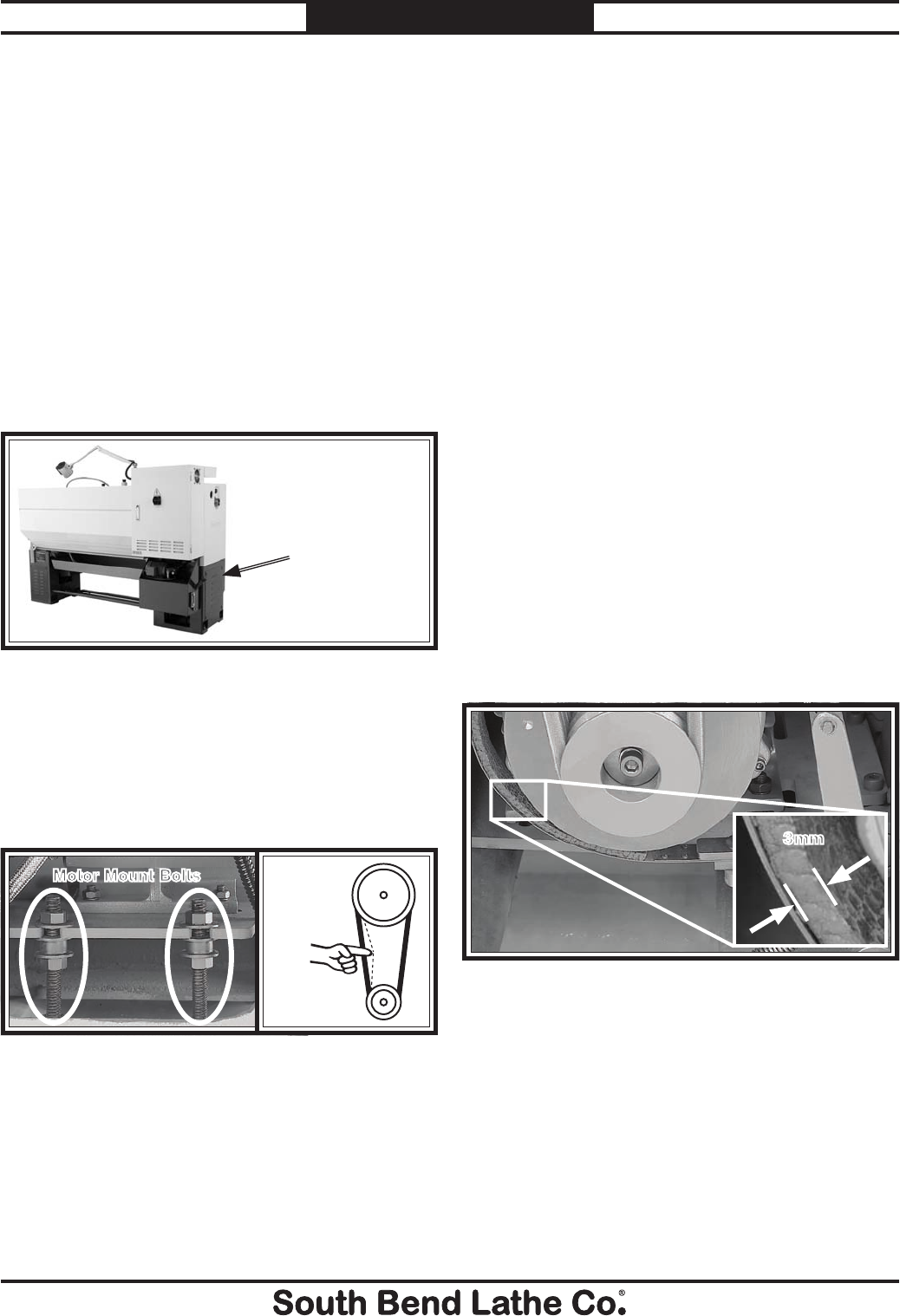
For Machines Mfg. Since 7/09 EVS Toolroom Lathes
-69-
SERVICE
V-Belts Brake & Switch
V-belts stretch and wear with use, so check them
on a monthly basis to ensure optimal power
transmission. Replace all of the V-belts if any of
them show signs of glazing, fraying, or cracking.
Tools Needed: Qty
Phillips Screwdriver #2 ........................................1
Open End Wrench 24mm......................................1
To adjust the V-belts:
1. DISCONNECT LATHE FROM POWER!
2. Remove the cover shown in Figure 136.
Figure 138. Minimum brake band lining thickness.
3mm
As the brake lining wears, the foot pedal
develops more travel. If the brake band is not
adjusted to compensate for normal wear, the
limit switch will still turn the lathe off, but the
spindle will not stop as quickly. It is especially
important that the brake is kept properly
adjusted so you can quickly stop the spindle in
an emergency.
Tools Needed: Qty
Phillips Screwdriver #2 ........................................1
Hex Wrench 6mm .................................................1
To adjust the brake and brake switch:
1. DISCONNECT LATHE FROM POWER!
2. Put on a respirator and eye protection to
protect yourself from hazardous brake dust.
3. Remove the motor cover shown in Figure
136.
4. Measure the remaining brake band lining at
the thinnest point, which is usually at the 8
o'clock position, as shown in Figure 138.
4. Firmly tighten the hex nuts (loosened in the
previous step) against the motor mount plate
to prevent it from moving out of adjustment
during operation, then re-install the motor
cover.
Figure 137. V-belt adjustment.
Pulley
Deflection
Pulley
Motor Mount Bolts
3. Turn the hex nuts on the motor mount bolts
shown in Figure 137 to move the motor
mount plate up or down and adjust the
V-belt tension. When correctly tensioned,
each belt should have about
3
⁄4" deflection
when pressed firmly (see Figure 137).
Figure 136. Location of motor cover.
Motor Cover
When the brake band is new, the lining
is approximately 6mm thick. If the lining
thickness wears to 3mm or less, the brake
band must be replaced; otherwise, the rivets
that secure the lining to the band will soon
grind into the brake hub. If the hub becomes
damaged, it must be replaced, which will
substantially increase the cost of repair,
compared to just replacing the brake band.



